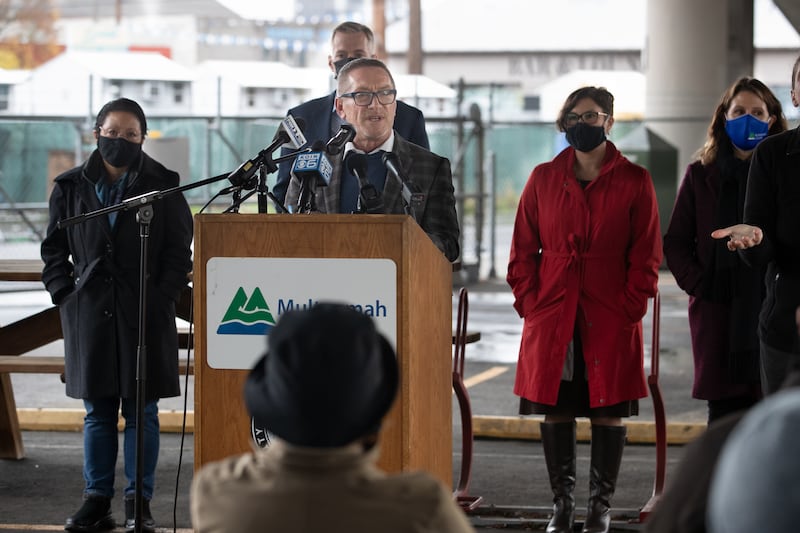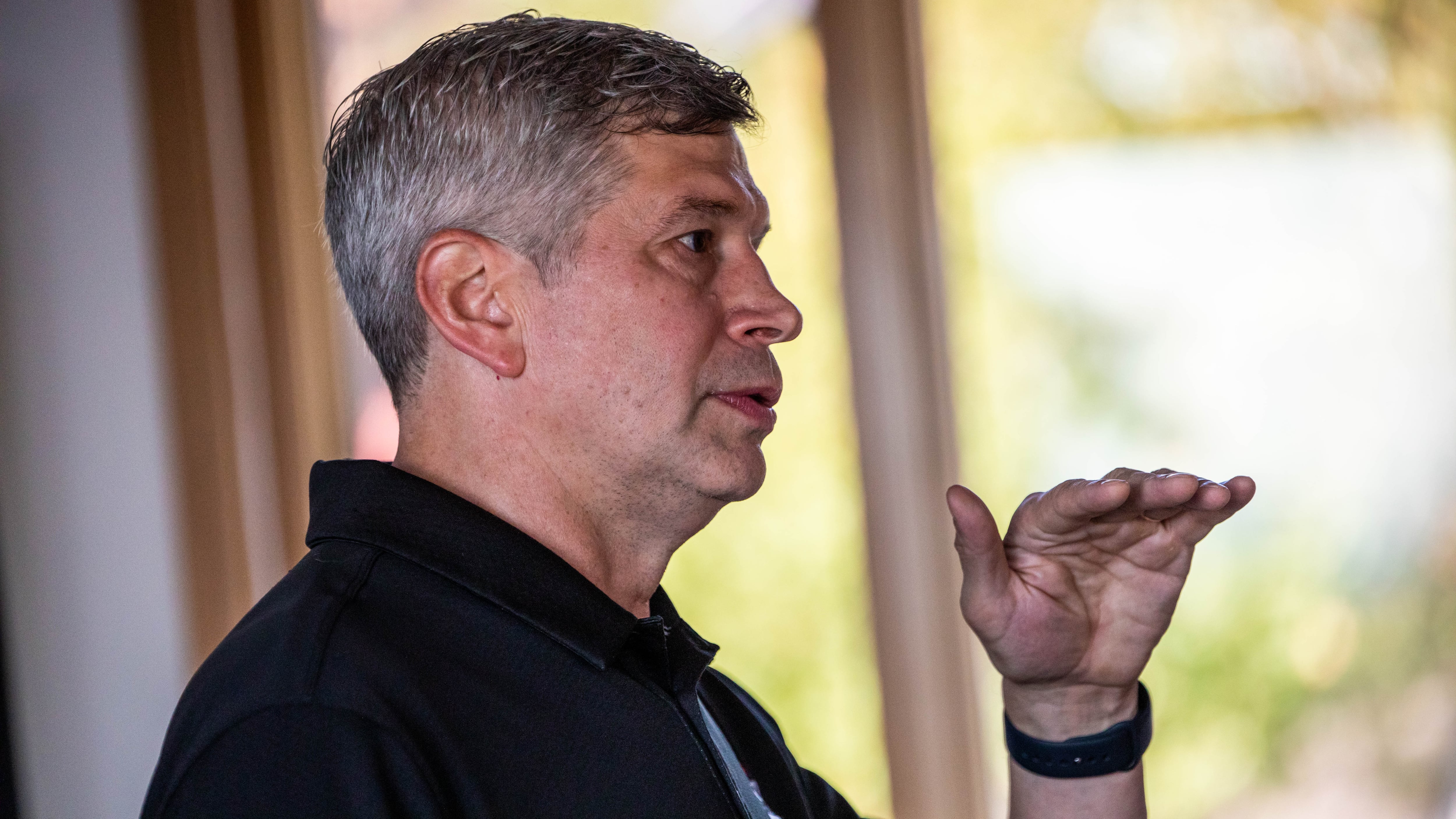Portland voters sent two contradictory messages with their ballots last November.
They elected a City Council as centrist as any in recent memory. They also resoundingly approved a ballot measure intended to usher in the most progressive and diverse council possible come 2025.
The result: A majority of the city commissioners currently occupying council chambers are political opponents of the future council that voters have decreed will replace them in two years.
Now, two current council members—Rene Gonzalez and Dan Ryan—have proposed three significant changes to charter reforms approved in 2022. But, already hamstrung by a rocky rollout and one commissioner softening his stance toward the whole idea, the attempt to tweak charter reform looks less like trying to build a time machine and more like a bad sequel to a fight Portland voters already settled last year.
On Tuesday, the City Council discussed the three changes in an hourslong public work session. The conversation among commissioners, select testifiers and city staff was spirited and sometimes testy. Little was resolved.
But drafts of the three measure referrals, already written by the City Attorney’s Office, have been submitted for review by the City Council next Wednesday. Any that garner at least three votes will appear on the November ballot.
We tried to answer a few questions about how we got here and what happens next.

HOW WE GOT HERE
For more than a year, beginning in 2021, a group of Portland volunteers put together a ballot measure that would radically reshape how the city functions come 2025.
They settled on dramatic reforms: city bureaus run by a professional administrator, four geographic voting districts represented by three city councilors each elected by ranked-choice voting, and a mayor who would oversee the city administrator but have no vote on the council nor any veto powers.
Because a supermajority of the volunteer Charter Commission approved the measure, it flew directly to the November 2022 ballot with no City Council input.
It was not until the volunteer group had formed its plan that the City Council at the time—the same as now, save for Rene Gonzalez—took issue with it. Commissioner Mingus Mapps, who had formed a political action committee expressly to fight the charter reform measure, pledged to present an alternative plan. It went nowhere.
Before long, it was too late. Fifty-eight percent of voters approved the measure in November. And there was little public talk from city leaders about the transition to the new form of government—until earlier this month.
WHAT GONZALEZ AND RYAN PROPOSE
Last week, Gonzalez and Ryan decided to bring three proposals to their colleagues that would alter charter reform if referred to the November 2023 ballot and approved by voters. Behind the scenes, they drafted three changes: adopt a different form of ranked-choice voting; shrink the size of the new City Council from 12 to eight members, electing them in alternating election cycles so the two positions in each district wouldn’t appear on the ballot at the same time; and give the future mayor veto powers.
Its rollout was rockier than either commissioner had hoped. The Oregonian first reported the proposed changes before Ryan and Gonzalez had shared drafts with their council colleagues, causing frustration at City Hall.
Since then, Commissioner Ryan has backed away from two of the three proposals, now saying he only has a “clear opinion” on the mayoral veto.
Still, Ryan defended the proposals in an interview with WW. Among his top concerns, he cited the rising cost estimates of the government transition, including a likely renovation of City Hall, proposed $142,000 annual salaries for each of the 12 city councilors, and a spike in the budget for the city’s Small-Donor Elections program.
“We have really high priorities for our city right now, and I don’t look at any of the budget as a drop of money,” Ryan tells WW regarding the city councilors’ increased salaries.
Commissioners’ offices have not received firm cost estimates for remodeling City Hall from the architecture firm hired to work up designs, and the city’s charter transition team, in conjunction with the City Budget Office, maintains that cost estimates of the transition haven’t risen, despite what Gonzalez and Ryan say. (The remodel of City Hall, says Office of Management and Finance spokeswoman Christine Llobregat, will happen regardless of whether there are 12 city councilors or only eight. An update cost estimate for the project is expected later this month.)
Gonzalez says the lack of numbers is galling. “It’s particularly frustrating because they won’t give us an estimate,” he says of the City Hall renovation that’s expected to take years. “Here we are in July, and we still don’t have that number. All that’s been made clear to us is that it’s going to be significant, and none of it was included in the original estimates given to voters.”
Critics of the 2022 charter reform measure called it an unprecedented government structure that was cobbled together from various other cities with no assurance the combination would work. But the same might be true of the alternative presented last week. Asked how his proposal would be any more predictable than the one Portlanders passed last November, Ryan bristled at the question: “That’s not my point.”
Gonzalez listed a number of concerns with the current charter reform plan: rising costs, not enough qualified candidates to run for the 12 City Council seats, and the fact that incumbents will be hard to kick out because ranked-choice voting means they need only 25% of the vote to get elected.
“I’m uncertain as to what precise authority the City Council had to intervene with the Charter Commission once it was underway. But to the extent there were mistakes, the original appointment of a lot of advocates came back to bite that council,” Gonzalez says. “It feels like this is now or forever holding your peace.”
Critics say Gonzalez and Ryan are simply trying to keep the City Council more conservative by scaling back the overhaul. “It absolutely is a change that fundamentally shifts the reasons that people supported this measure around increasing representation,” says Jenny Lee, deputy director of the Coalition of Communities of Color, which backed the 2022 charter reform measure.
Gonzalez says the council is plenty diverse, and questions why the volunteer reformers made diversity their top priority. “We have incredible representation of diversity under existing voting systems,” he says. “I’m not sure we should be designing a system with solely that in mind.”
WHY IT’S ALREADY A POLITICAL MESS
Commissioner Gonzalez has a number of hurdles to jump.
First, he must get at least three votes on the City Council to send his proposals to the November ballot. It’s not clear whether he has even Ryan’s support at this point. (And after Tuesday’s work session, Gonzalez may be less adamant himself.) Mayor Ted Wheeler appeared skeptical on Tuesday; Commissioner Carmen Rubio says she’s open to the mayoral veto but has concerns about the rest. Commissioner Mapps, who announced just two weeks ago that he will run for mayor in 2024, says he’s consulting the City Attorney’s Office to determine whether even casting a vote on Gonzalez’s changes might present a conflict of interest as a mayoral candidate.
If the proposed changes make it past a council vote, what they face on the other side could be even more formidable: a well-moneyed coalition of local and national progressive groups that bankrolled the “yes” campaign for the original charter reform measure.
“We’re taking the effort very seriously,” the Coalition of Communities of Color’s Lee says. “We have a really robust campaign in terms of the number of endorsers as well as our fundraising. We are ready to pivot into whatever needs to be done.”
It’s also unclear what group, if any, would run a campaign for the changes if they were placed on the ballot. The Portland Metro Chamber, formerly the Portland Business Alliance, which opposed the 2022 measure, declined to comment.
If the City Council approves any or all of the proposals, they would land on the November 2023 ballot in a special election. It’s hard to say who would vote on them. Turnout for special elections hovers around 25% to 30%, compared with general election turnout that’s closer to 75%.
Pollster John Horvick of DHM Research says the success of a new charter reform measure may hinge on marketing. “If it was given as a technical fix, the advocates for the charter reform were supportive or were neutral, it could pass,” Horvick says. “But if it’s seen as throwing out what voters decided just the last election, I don’t know how this plays out.”
Horvick says he cannot recall a previous example of City Council asking voters to revise something they voted for just one year before.
That being said, it appears Gonzalez is already looking at revising other programs and reforms recently passed by Portland voters. “We’ve had discussions about other ballot measures,” Gonzalez says. “What deserves some tweaking? What really doesn’t make sense?”
The two measures he’s eyeing in particular: the Portland Clean Energy Fund and a 2020 measure that greenlit the creation of a new police oversight board.

